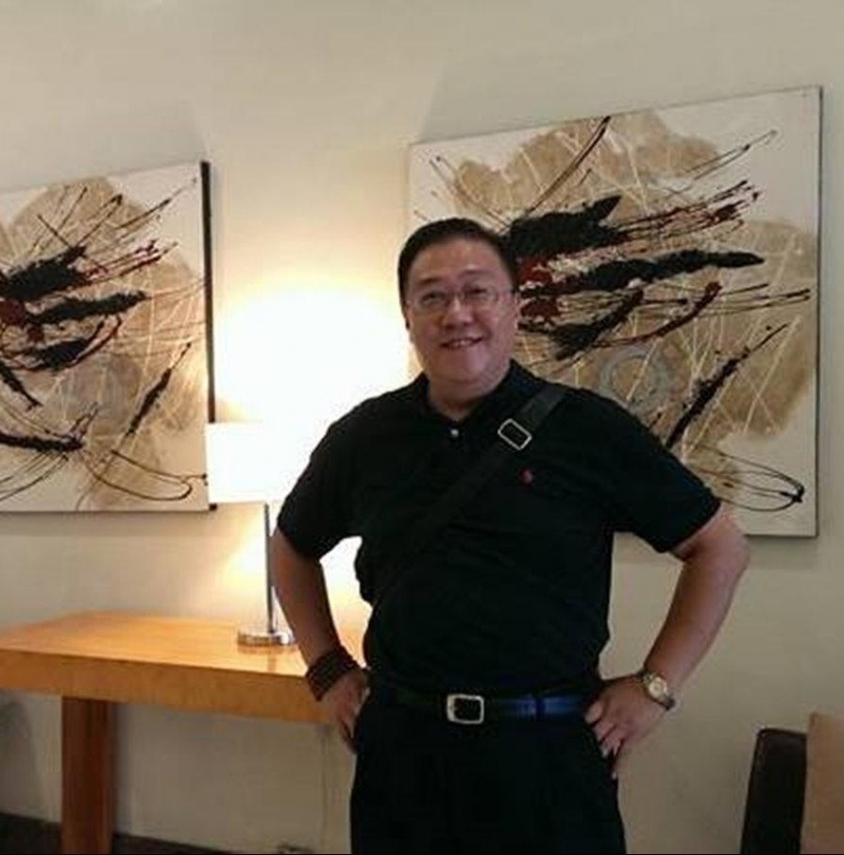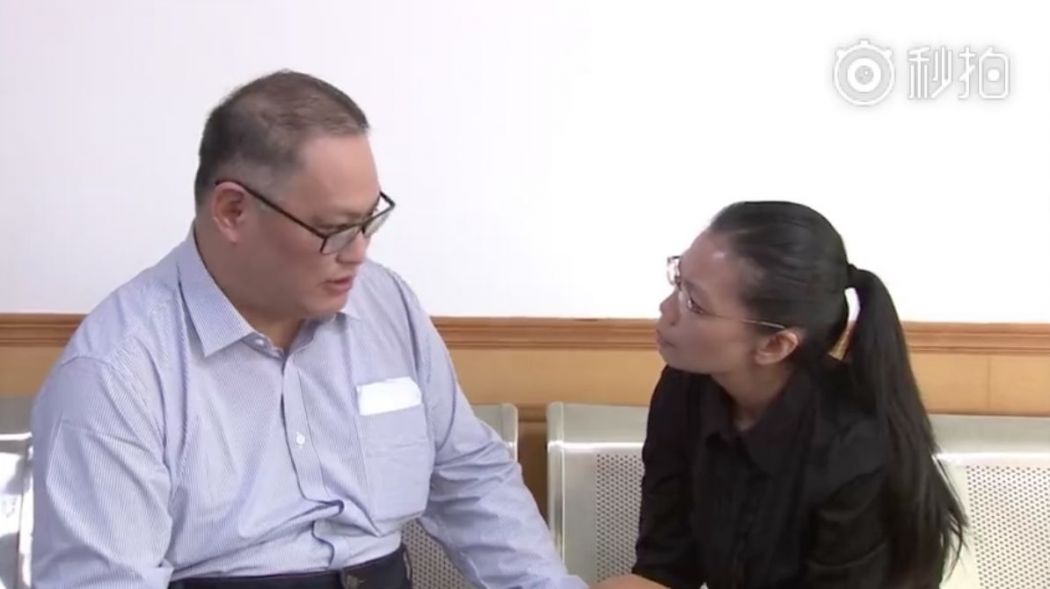by Brian Hioe
語言:
English
Photo Credit: 玄史生/WikiCommons/CC
THE REVELATION earlier this month that Shih Cheng-ping (施正屏), 56, a retired professor who formerly taught at National Taiwan Normal University (NTNU) and a member of the KMT, has been detained in China for over a year once again points to China’s arbitrary detention of Taiwanese. It is known that Shih is being detained on charges related to state security and that he was sentenced to three to four years in jail, but the Chinese government has refused to clarify the circumstances of Shih’s detention to the Taiwanese government.
 Shih Cheng-ping. Photo credit: Shih Cheng-ping/Facebook
Shih Cheng-ping. Photo credit: Shih Cheng-ping/Facebook
After being detained in August of last year, Shih has now been detained within China for one year and three months. Shih previously taught at the Graduate Institute of International Human Resource Development of NTNU. Shih was working as an economist for the Huaxia Group, a Chinese state-owned enterprise, at the time of his disappearance.
Notably, Shih was a member of the KMT, although he was known to be in favor of the party politically localizing. For example, Shih’s membership within the KMT did not prevent him from serving as Chen Shui-bian’s agriculture and trade representative to the United States. However according to friends and family of Shih’s, Shih was an adamant member of the pan-Blue camp, as a second-generation waishengren descended from a KMT family. At the time of Shih’s disappearance, Shih was writing as a columnist for the Want Want Group-owned China Times, writing columns highly critical of the Tsai administration.
It is not impossible that Shih was detained due to his work for the Huaxia Group—at a time in which simply accurately reporting on China’s financial situation could lead to criminal charges from the Chinese government—-or because he served as an official under the Chen administration. That being said, according to the Liberty Times, it is thought that Shih is detained due to his writing for the China Times, after having written on the use of the CCP’s internal disciplining process for party members as a means of targeting People’s Liberation Army members.
As with the revelation in September that pro-unification advocate Tsai Jin-shu has been detained in China for over 420 days, Shih’s detention points to the fact that being a member of the pan-Blue camp will not prevent one from being kidnapped by the Chinese government. Tsai was detained on charges of endangering Chinese state security and was detained by Chinese authorities in July of last year after crossing into China from Kinmen. Tsai was, in fact, an active advocate of political unification between Taiwan and China as the chair of the Southern Taiwan Union of Cross-Strait Relations Associations and the director of the Kaohsiung Cross-Strait Exchanges Research Association.
Taiwanese human rights advocate Lee Ming-che has been detained in China now for over two and a half years on charges of endangering state security. In August, Taiwanese businessman and activist Morrison Meng-chu Lee was also detained after crossing into China from Hong Kong after participating in demonstrations there. However, both Lees were known to be members of the pan-Green camp.
 Tsai Jin-shu. Photo credit: Tsai Jin-shu/Facebook
Tsai Jin-shu. Photo credit: Tsai Jin-shu/Facebook
In particular, in the aftermath of revelations that Tsai Jin-shu has been detained in China for over 420 days, the Mainland Affairs Council (MAC) revealed that there are 149 Taiwanese citizens currently missing in China, with the MAC unable to confirm the whereabouts of 67 individuals. After this announcement in September, the MAC later was able to locate 19 missing individuals. It is feared that Taiwanese in China unable to be located by the MAC could possibly have, similarly, been detained by the Chinese government, though it is also possible that some are missing for other reasons, such as accidental deaths or crime.
However, the reason why Tsai Jin-shu’s disappearance did not come to light earlier was because of the fact that the Tsai family did not wish to go public with the case. The Tsai family did notify the Taiwanese government of Tsai’s detention, but the Tsai family feared that if it did so, this could lengthen Tsai’s detention.
Shih’s disappearance also did not come to light sooner because the Shih family was not willing to go public regarding the case. The Shih family claimed to friends and colleagues of Shih’s that Shih was traveling in China, though suspicions were aroused when Shih did not appear at his daughter’s university graduation ceremony in the United States.
Reportedly, the Shih family feared that Shih’s ill mother would be overstressed by public attention and feared Shih becoming known as a “second Lee Ming-che”. Moreover, the Shih family initially did not report Shih’s disappearance to the Straits Exchange Foundation (SEF), the body which handles cross-strait exchanges for the Taiwanese government, but also claimed to the SEF that Shih was simply conducting research in China after inquiries to the family by the organization.
Cases of cross-strait kidnappings of Taiwanese by the Chinese government were negotiated in an under-the-table manner by the KMT and CCP during the authoritarian period. Some families—particularly those with pan-Blue backgrounds—may believe that they can more easily secure the release of their family members if they remain quiet about their detention.
 Lee Ming-che (left) while on trial and his wife (right), Lee Ching-yu. Photo credit: Yueyang Intermediate People’s Court/Weibo
Lee Ming-che (left) while on trial and his wife (right), Lee Ching-yu. Photo credit: Yueyang Intermediate People’s Court/Weibo
Indeed, Lee Ming-che also seems to have come from a pan-Blue background. Lee was actually a former member of the youth section of the New Party before an apparent political shift led him to join the DPP. Consequently, it may not be surprising that splits emerged within the Lee family regarding what attitude to take regarding his detention.
Lee’s mother seemed to adopt the view that the Lee family should remain quiet about Lee Ming-che’s disappearance, in fact, calling on her son to “apologize to the Chinese motherland” and reportedly taking the opportunity to throw out Lee Ming-che’s political books. On the other hand, Lee’s wife, Lee Ching-yu went public with the case to call for her husband’s release, reportedly coming into conflict with Lee’s mother. The Lee family was also at one point approached by a man with ties to KMT legislator Alex Tsai who claimed that he could act as an intermediary with the Chinese government.
It is very probable, then, that a number of cases of Taiwanese kidnapped by the Chinese government are not public because the family of the kidnapped individual has not been willing to come forward publicly. Increased caution seems necessary for Taiwanese—of any political stripe—traveling to China going forward.

